- Home
- W. W. Jacobs
The Old Soldier's Story: Poems and Prose Sketches
The Old Soldier's Story: Poems and Prose Sketches Read online
Produced by David Clarke, Chandra Friend and the OnlineDistributed Proofreading Team at https://www.pgdp.net (Thisfile was produced from images generously made availableby The Internet Archive/American Libraries.)
Transcriber's Note: Dialect has been retained as it appears in theoriginal publication.
THE OLD SOLDIER'S STORY
_Poems and Prose Sketches_
JAMES WHITCOMB RILEY
Indianapolis
The Bobbs-Merrill Company Publishers
Copyright 1913, 1914, 1915
James Whitcomb Riley
Press of Braunworth & Co. Bookbinders and Printers Brooklyn, N. Y.
TO
GEORGE THOMPSON, ESQ.
"_Apples ben ripe in my gardayne_"
CONTENTS
PAGE
THE OLD SOLDIER'S STORY 1
SOMEP'N COMMON-LIKE 5
MONSIEUR LE SECRETAIRE 6
A PHANTOM 7
IN THE CORRIDOR 8
LOUELLA WAINIE 9
THE TEXT 11
WILLIAM BROWN 12
WHY 14
THE TOUCH OF LOVING HANDS 15
A TEST 16
A SONG FOR CHRISTMAS 17
SUN AND RAIN 19
WITH HER FACE 20
MY NIGHT 21
THE HOUR BEFORE THE DAWN 22
GOOD-BY, OLD YEAR 23
FALSE AND TRUE 24
A BALLAD FROM APRIL 25
BRUDDER SIMS 27
DEFORMED 28
FAITH 30
THE LOST THRILL 31
AT DUSK 32
ANOTHER RIDE FROM GHENT TO AIX 33
IN THE HEART OF JUNE 36
DREAMS 37
BECAUSE 42
TO THE CRICKET 43
THE OLD-FASHIONED BIBLE 44
UNCOMFORTED 46
WHAT THEY SAID 48
AFTER THE FROST 50
CHARLES H. PHILLIPS 51
WHEN IT RAINS 53
AN ASSASSIN 55
BEST OF ALL 56
BIN A-FISHIN' 57
UNCLE DAN'L IN TOWN OVER SUNDAY 59
SOLDIERS HERE TO-DAY 61
SHADOW AND SHINE 65
THAT NIGHT 66
AUGUST 67
THE GUIDE 68
SUTTER'S CLAIM 71
HER LIGHT GUITAR 73
WHILE CIGARETTES TO ASHES TURN 74
TWO SONNETS TO THE JUNE-BUG 77
AUTOGRAPHIC 79
AN IMPROMPTU ON ROLLER SKATES 80
WRITTEN IN BUNNER'S "AIRS FROM ARCADY" 81
IN THE AFTERNOON 82
AT MADAME MANICURE'S 84
A CALLER FROM BOONE 86
LORD BACON 98
MY FIRST WOMERN 99
AS WE READ BURNS 101
TO JAMES NEWTON MATTHEWS 102
SONG 103
WHEN WE THREE MEET 105
JOSH BILLINGS 106
WHICH ANE 108
THE EARTHQUAKE 111
A FALL-CRICK VIEW OF THE EARTHQUAKE 112
LEWIS D. HAYES 114
IN DAYS TO COME 116
LUTHER A. TODD 117
WHEN THE HEARSE COMES BACK 121
OUR OLD FRIEND NEVERFAIL 124
DAN O'SULLIVAN 126
JOHN BOYLE O'REILLY 127
MEREDITH NICHOLSON 129
GOD'S MERCY 130
CHRISTMAS GREETING 131
TO RUDYARD KIPLING 132
THE GUDEWIFE 133
TENNYSON 134
ROSAMOND C. BAILEY 135
MRS. BENJAMIN HARRISON 136
GEORGE A. CARR 138
TO ELIZABETH 139
TO ALMON KEEFER 140
TO--"THE J. W. R. LITERARY CLUB" 142
LITTLE MAID-O'-DREAMS 143
TO THE BOY WITH A COUNTRY 145
CLAUDE MATTHEWS 146
TO LESLEY 147
THE JUDKINS PAPERS 148
TO THE QUIET OBSERVER--ERASMUS WILSON 165
AMERICA'S THANKSGIVING 166
WILLIAM PINKNEY FISHBACK 168
JOHN CLARK RIDPATH 170
NEW YEAR'S NURSERY JINGLE 173
TO THE MOTHER 174
TO MY SISTER 175
A MOTTO 176
TO A POET ON HIS MARRIAGE 177
ART AND POETRY 178
HER SMILE OF CHEER AND VOICE OF SONG 179
OLD INDIANY 180
ABE MARTIN 183
O. HENRY 185
"MONA MACHREE" 186
WILLIAM MCKINLEY 187
BENJAMIN HARRISON 190
LEE O. HARRIS 192
THE HIGHEST GOOD 194
MY CONSCIENCE 195
MY BOY 197
THE OBJECT LESSON 198
THE OLD SOLDIER'S STORY
AS TOLD BEFORE THE NEW ENGLAND SOCIETY IN NEW YORK CITY
Since we have had no stories to-night I will venture, Mr. President,to tell a story that I have heretofore heard at nearly all thebanquets I have ever attend
ed. It is a story simply, and you must bearwith it kindly. It is a story as told by a friend of us all, who isfound in all parts of all countries, who is immoderately fond of afunny story, and who, unfortunately, attempts to tell a funny storyhimself--one that he has been particularly delighted with. Well, he isnot a story-teller, and especially he is not a funny story-teller. Hisfunny stories, indeed, are oftentimes touchingly pathetic. But to sucha story as he tells, being a good-natured man and kindly disposed, wehave to listen, because we do not want to wound his feelings bytelling him that we have heard that story a great number of times, andthat we have heard it ably told by a great number of people from thetime we were children. But, as I say, we can not hurt his feelings. Wecan not stop him. We can not kill him; and so the story generallyproceeds. He selects a very old story always, and generally tells itin about this fashion:--
I heerd an awful funny thing the other day--ha! ha! I don't knowwhether I kin git it off er not, but, anyhow, I'll tell it to you.Well!--le's see now how the fool-thing goes. Oh, yes!--W'y, there wasa feller one time--it was durin' the army, and this feller that Istarted in to tell you about was in the war, and--ha! ha!--there was abig fight a-goin' on, and this feller was in the fight, and it was abig battle and bullets a-flyin' ever' which way, and bombshellsa-bu'stin', and cannon-balls a-flyin' 'round promiskus; and thisfeller right in the midst of it, you know, and all excited and het up,and chargin' away; and the fust thing you know along come acannon-ball and shot his head off--ha! ha! ha! Hold on here aminute!--no sir; I'm a-gittin' ahead of my story; no, no; it didn'tshoot his _head_ off--I'm gittin' the cart before the horse there--shothis _leg_ off; that was the way; shot his leg off; and down the poorfeller drapped, and, of course, in that condition was perfectlyhe'pless, you know, but yit with presence o' mind enough to know thathe was in a dangerous condition ef somepin' wasn't done fer him rightaway. So he seen a comrade a-chargin' by that he knowed, and hehollers to him and called him by name--I disremember now what thefeller's name was....
Well, that's got nothin' to do with the story, anyway; he hollers tohim, he did, and says, "Hello, there," he says to him; "here, I wantyou to come here and give me a lift; I got my leg shot off, and I wantyou to pack me back to the rear of the battle"--where the doctorsalways is, you know, during a fight--and he says, "I want you to packme back there where I can get med-dy-cinal attention er I'm a deadman, fer I got my leg shot off," he says, "and I want you to pack meback there so's the surgeons kin take keer of me." Well--the feller,as luck would have it, ricko-nized him and run to him and throwed downhis own musket, so's he could pick him up; and he stooped down andpicked him up and kindo' half-way shouldered him and half-way helt himbetwixt his arms like, and then he turned and started back withhim--ha! ha! ha! Now, mind, the fight was still a-goin' on--and rightat the hot of the fight, and the feller, all excited, you know, likehe was, and the soldier that had his leg shot off gittin' kindo faintylike, and his head kindo' stuck back over the feller's shoulder thatwas carryin' him. And he hadn't got more'n a couple o' rods with himwhen another cannon-ball come along and tuk his head off, shoreenough!--and the curioust thing about it was--ha! ha!--that the fellerwas a-packin' him didn't know that he had been hit ag'in at all, andback he went--still carryin' the deceased back--ha! ha! ha!--to wherethe doctors could take keer of him--as he thought. Well, his cap'nhappened to see him, and he thought it was a ruther cur'ousp'ceedin's--a soldier carryin' a dead body out o' the fight--don't yousee? And so he hollers at him, and he says to the soldier, the cap'ndid, he says, "Hullo, there; where you goin' with that thing?" thecap'n said to the soldier who was a-carryin' away the feller that hadhis leg shot off. Well, his head, too, by that time. So he says,"Where you goin' with that thing?" the cap'n said to the soldier whowas a-carryin' away the feller that had his leg shot off. Well, thesoldier he stopped--kinder halted, you know, like a private soldierwill when his presidin' officer speaks to him--and he says to him,"W'y," he says, "Cap, it's a comrade o' mine and the pore feller hasgot his leg shot off, and I'm a-packin' him back to where the doctorsis; and there was nobody to he'p him, and the feller would 'a' died inhis tracks--er track ruther--if it hadn't a-been fer me, and I'ma-packin' him back where the surgeons can take keer of him; where hecan get medical attendance--er his wife's a widder!" he says, "'causehe's got his leg shot off!" Then _Cap'n_ says, "You blame fool you, he'sgot his _head_ shot off." So then the feller slacked his grip on thebody and let it slide down to the ground, and looked at it a minute,all puzzled, you know, and says, "W'y, he told me it was his leg!" Ha!ha! ha!
SOMEP'N COMMON-LIKE
Somep'n 'at's common-like, and good And plain, and easy understood; Somep'n 'at folks like me and you Kin understand, and relish, too, And find some sermint in 'at hits The spot, and sticks and benefits.
We don't need nothin' extry fine; 'Cause, take the run o' minds like mine, And we'll go more on good horse-sense Than all your flowery eloquence; And we'll jedge best of honest acts By Nature's statement of the facts.
So when you're wantin' to express Your misery, er happiness, Er anything 'at's wuth the time O' telling in plain talk er rhyme-- Jes' sort o' let your subject run As ef the Lord wuz listenun.
MONSIEUR LE SECRETAIRE
[JOHN CLARK RIDPATH]
Mon cher Monsieur le Secretaire, Your song flits with me everywhere; It lights on Fancy's prow and sings Me on divinest voyagings: And when my ruler love would fain Be laid upon it--high again It mounts, and hugs itself from me With rapturous wings--still dwindlingly-- On!--on! till but a _ghost_ is there Of song, Monsieur le Secretaire!
A PHANTOM
Little baby, you have wandered far away, And your fairy face comes back to me to-day, But I can not feel the strands Of your tresses, nor the play Of the dainty velvet-touches of your hands.
Little baby, you were mine to hug and hold; Now your arms cling not about me as of old-- O my dream of rest come true, And my richer wealth than gold, And the surest hope of Heaven that I knew!
O for the lisp long silent, and the tone Of merriment once mingled with my own-- For the laughter of your lips, And the kisses plucked and thrown In the lavish wastings of your finger-tips!
Little baby, O as then, come back to me, And be again just as you used to be, For this phantom of you stands All too cold and silently, And will not kiss nor touch me with its hands.
IN THE CORRIDOR
Ah! at last alone, love! Now the band may play Till its sweetest tone, love, Swoons and dies away! They who most will miss us We're not caring for-- Who of them could kiss us In the corridor?
Had we only known, dear, Ere this long delay, Just how all alone, dear, We might waltz away, Then for hours, like this, love, We are longing for, We'd have still to kiss, love, In the corridor!
Nestle in my heart, love; Hug and hold me close-- Time will come to part, love, Ere a fellow knows; There! the Strauss is ended-- Whirl across the floor: Isn't waltzing splendid In the corridor?
LOUELLA WAINIE
Louella Wainie! where are you? Do you not hear me as I cry? Dusk is falling; I feel the dew; And the dark will be here by and by: I hear no thing but the owl's hoo-hoo! Louella Wainie! where are you?
Hand in hand to the pasture bars We came loitering, Lou and I, Long ere the fireflies coaxed the stars Out of their hiding-place on high. O how sadly the cattle moo! Louella Wainie! where are you?
Laughingly we parted here-- "I will go this way," said she, "And you will go that way, my dear"-- Kissing her dainty hand at me-- And the hazels hid her from my view. Louella Wainie! where are you?
Is there ever a sadder thing Than to stand on the farther brink Of twilight, hearing the marsh-frogs sing?
Nothing could sadder be, I think! And ah! how the night-fog chills one through. Louella Wainie! where are you?
Water-lilies and oozy leaves-- Lazy bubbles that bulge and stare Up at the moon through the gloom it weaves Out of the willows waving there! Is it despair I am wading through? Louella Wainie! where are you?
Louella Wainie, listen to me, Listen, and send me some reply, For so will I call unceasingly Till death shall answer me by and by-- Answer, and help me to find you too! Louella Wainie! where are you?
THE TEXT
The text: Love thou thy fellow man! He may have sinned;--One proof indeed, He is thy fellow, reach thy hand And help him in his need!
Love thou thy fellow man. He may Have wronged thee--then, the less excuse Thou hast for wronging him. Obey What he has dared refuse!
Love thou thy fellow man--for, be His life a light or heavy load, No less he needs the love of thee To help him on his road.
WILLIAM BROWN
"He bore the name of William Brown"-- His name, at least, did not go down With him that day He went the way Of certain death where duty lay.
He looked his fate full in the face-- He saw his watery resting-place Undaunted, and With firmer hand Held others' hopes in sure command.--

_preview.jpg) Sailor's Knots (Entire Collection)
Sailor's Knots (Entire Collection)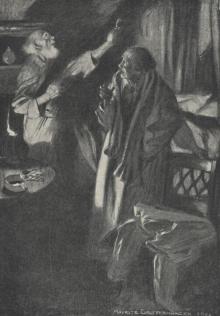 The Monkey's Paw
The Monkey's Paw Little Masterpieces of American Wit and Humor, Volume II
Little Masterpieces of American Wit and Humor, Volume II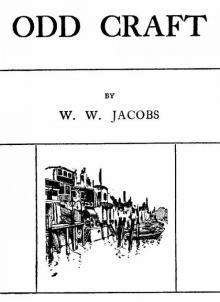 Odd Craft, Complete
Odd Craft, Complete The Lady of the Barge and Others, Entire Collection
The Lady of the Barge and Others, Entire Collection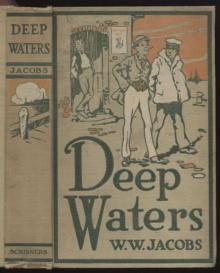 Deep Waters, the Entire Collection
Deep Waters, the Entire Collection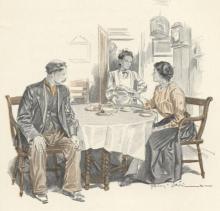 Three at Table
Three at Table Light Freights
Light Freights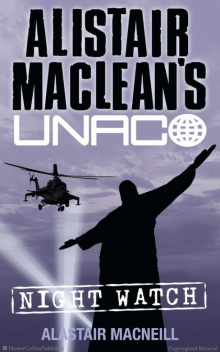 Night Watches
Night Watches The Three Sisters
The Three Sisters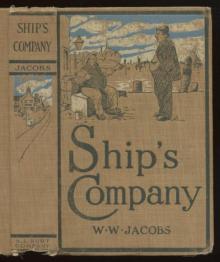 Ship's Company, the Entire Collection
Ship's Company, the Entire Collection His Lordship's Leopard: A Truthful Narration of Some Impossible Facts
His Lordship's Leopard: A Truthful Narration of Some Impossible Facts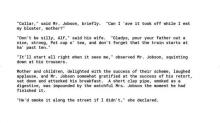 Fine Feathers
Fine Feathers My Man Sandy
My Man Sandy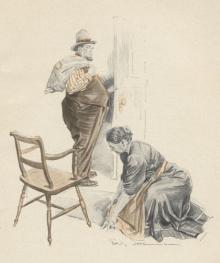 Self-Help
Self-Help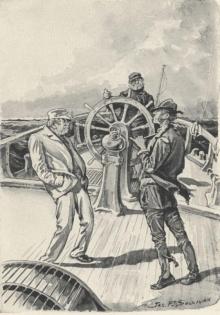 Captains All and Others
Captains All and Others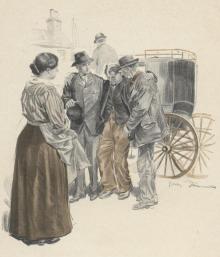 Back to Back
Back to Back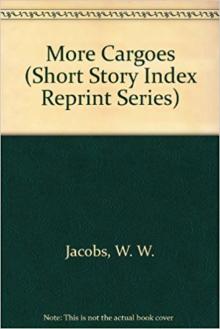 More Cargoes
More Cargoes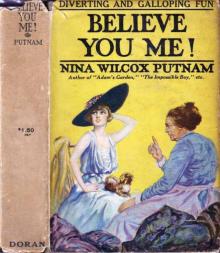 Believe You Me!
Believe You Me!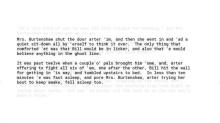 Keeping Up Appearances
Keeping Up Appearances The Statesmen Snowbound
The Statesmen Snowbound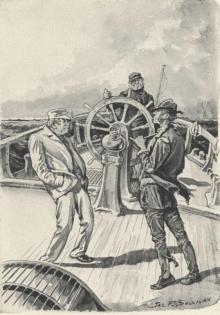 An Adulteration Act
An Adulteration Act The Old Soldier's Story: Poems and Prose Sketches
The Old Soldier's Story: Poems and Prose Sketches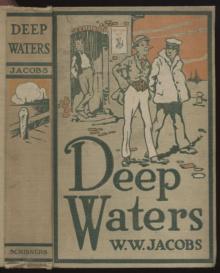 Husbandry
Husbandry Love and the Ironmonger
Love and the Ironmonger The Old Man's Bag
The Old Man's Bag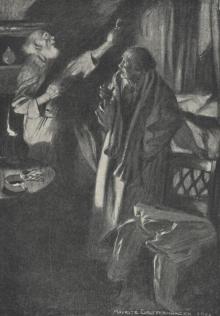 Dirty Work
Dirty Work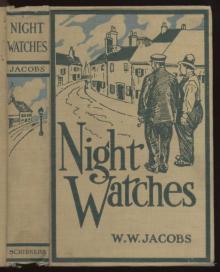 Easy Money
Easy Money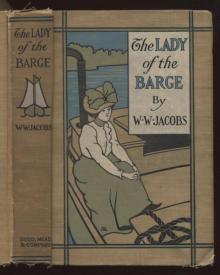 The Lady of the Barge
The Lady of the Barge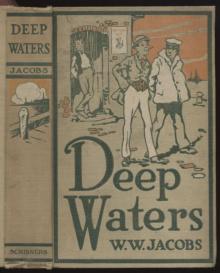 Bedridden and the Winter Offensive
Bedridden and the Winter Offensive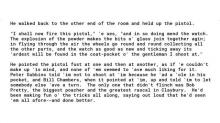 Odd Charges
Odd Charges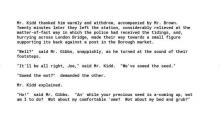 Friends in Need
Friends in Need Watch-Dogs
Watch-Dogs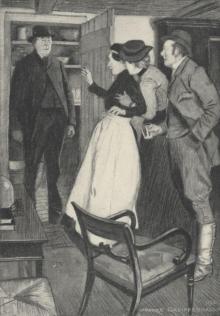 Cupboard Love
Cupboard Love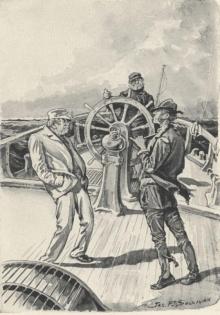 Captains All
Captains All A Spirit of Avarice
A Spirit of Avarice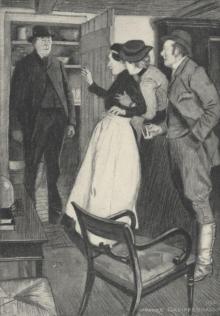 The Nest Egg
The Nest Egg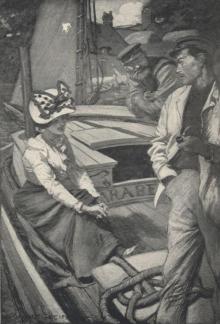 The Guardian Angel
The Guardian Angel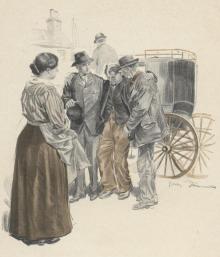 The Convert
The Convert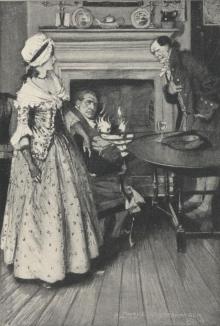 Captain Rogers
Captain Rogers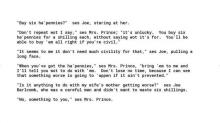 Breaking a Spell
Breaking a Spell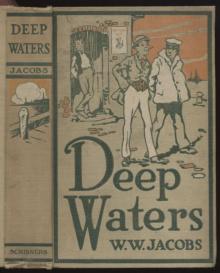 Striking Hard
Striking Hard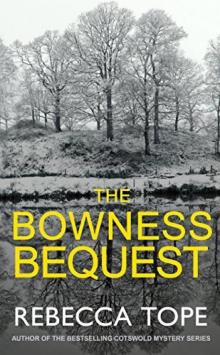 The Bequest
The Bequest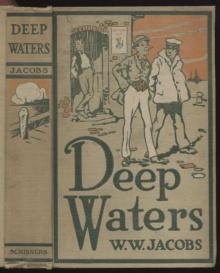 Shareholders
Shareholders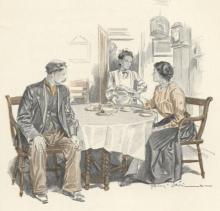 The Weaker Vessel
The Weaker Vessel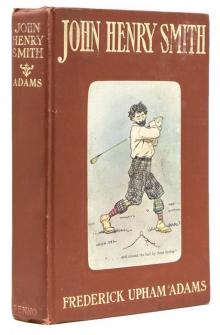 John Henry Smith
John Henry Smith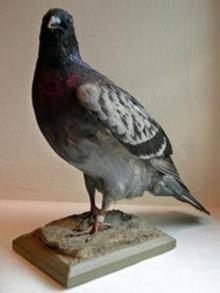 Four Pigeons
Four Pigeons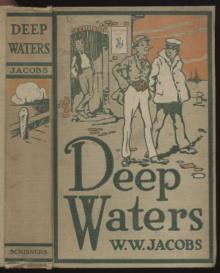 Made to Measure
Made to Measure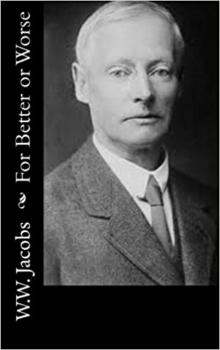 For Better or Worse
For Better or Worse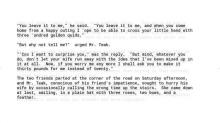 Fairy Gold
Fairy Gold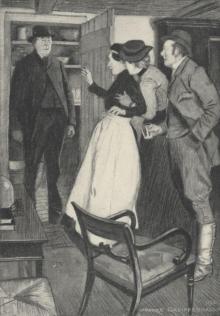 Family Cares
Family Cares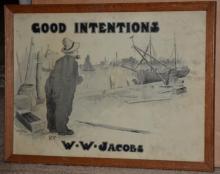 Good Intentions
Good Intentions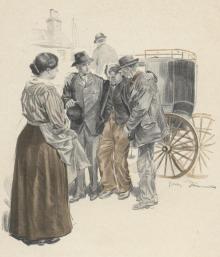 Prize Money
Prize Money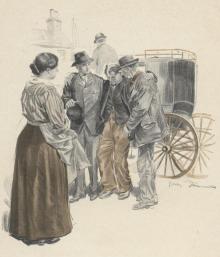 The Temptation of Samuel Burge
The Temptation of Samuel Burge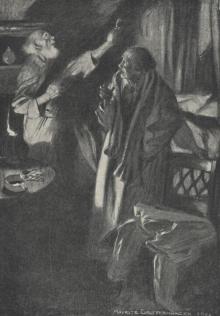 The Madness of Mr. Lister
The Madness of Mr. Lister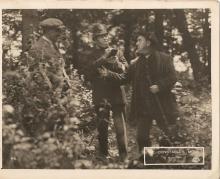 The Constable's Move
The Constable's Move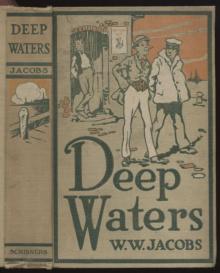 Paying Off
Paying Off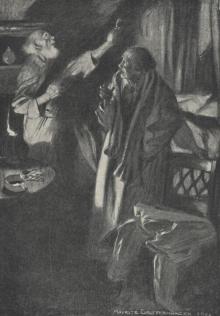 Double Dealing
Double Dealing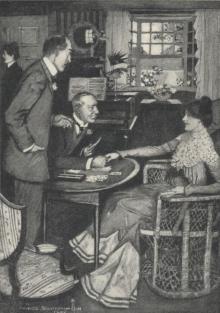 A Mixed Proposal
A Mixed Proposal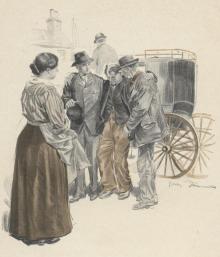 Bill's Paper Chase
Bill's Paper Chase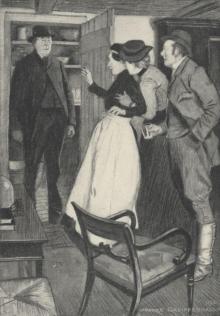 The Changing Numbers
The Changing Numbers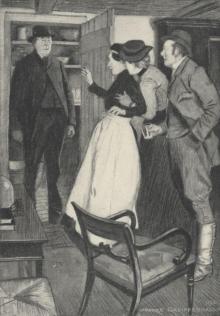 Over the Side
Over the Side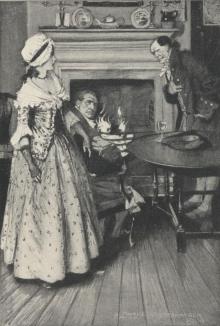 Lawyer Quince
Lawyer Quince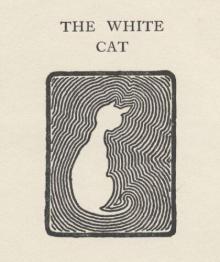 The White Cat
The White Cat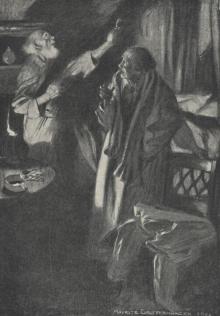 Admiral Peters
Admiral Peters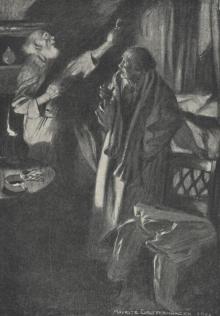 The Third String
The Third String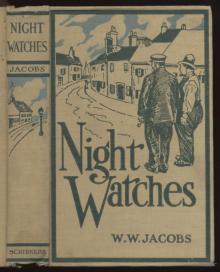 The Vigil
The Vigil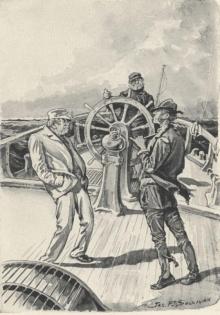 Bill's Lapse
Bill's Lapse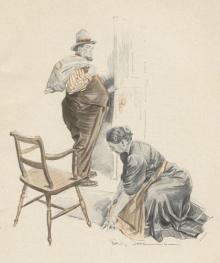 His Other Self
His Other Self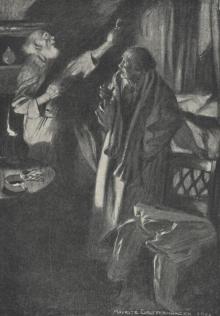 Matrimonial Openings
Matrimonial Openings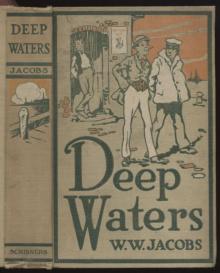 The Substitute
The Substitute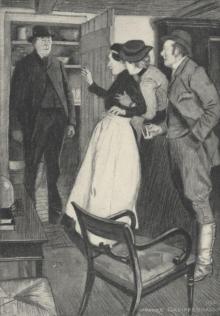 Deserted
Deserted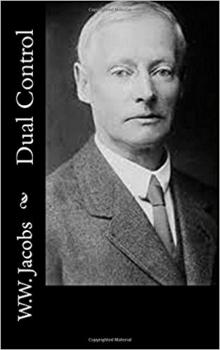 Dual Control
Dual Control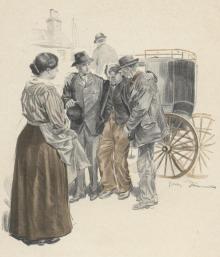 Homeward Bound
Homeward Bound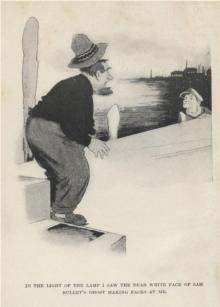 Sam's Ghost
Sam's Ghost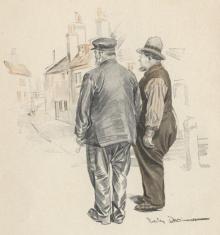 The Unknown
The Unknown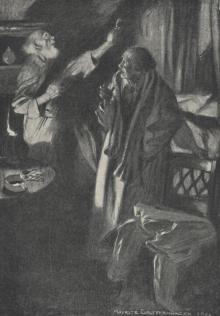 Stepping Backwards
Stepping Backwards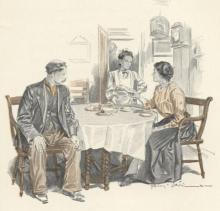 Sentence Deferred
Sentence Deferred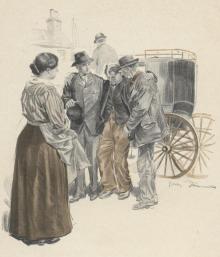 The Persecution of Bob Pretty
The Persecution of Bob Pretty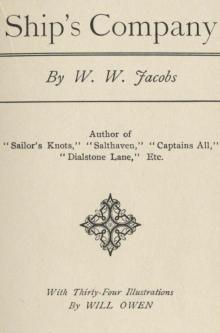 Skilled Assistance
Skilled Assistance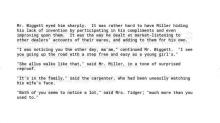 A Golden Venture
A Golden Venture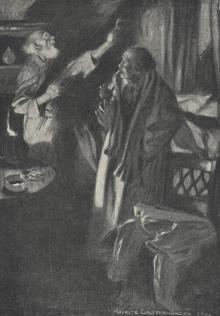 Establishing Relations
Establishing Relations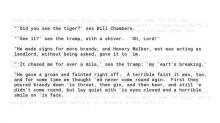 A Tiger's Skin
A Tiger's Skin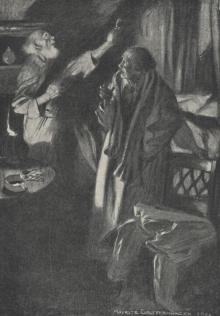 Bob's Redemption
Bob's Redemption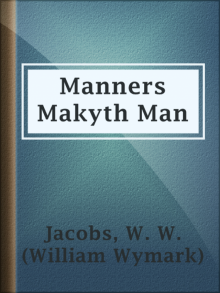 Manners Makyth Man
Manners Makyth Man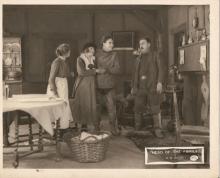 The Head of the Family
The Head of the Family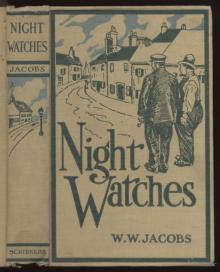 The Understudy
The Understudy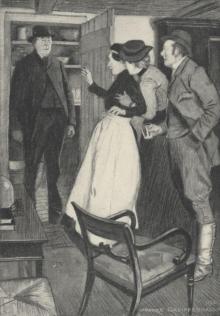 Odd Man Out
Odd Man Out Once Aboard the Lugger-- The History of George and his Mary
Once Aboard the Lugger-- The History of George and his Mary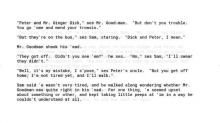 Peter's Pence
Peter's Pence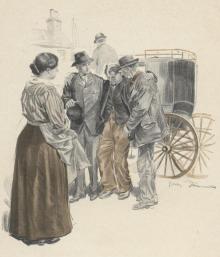 Blundell's Improvement
Blundell's Improvement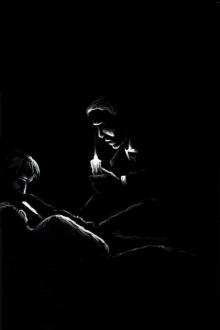 The Toll-House
The Toll-House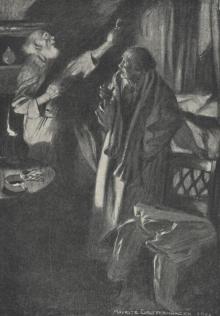 Dixon's Return
Dixon's Return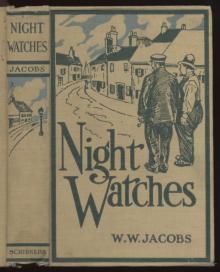 Keeping Watch
Keeping Watch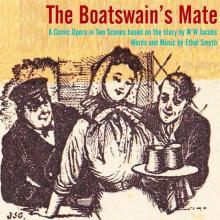 The Boatswain's Mate
The Boatswain's Mate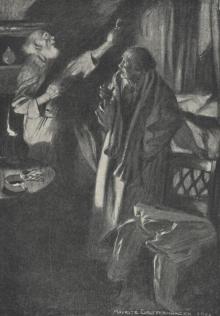 The Castaway
The Castaway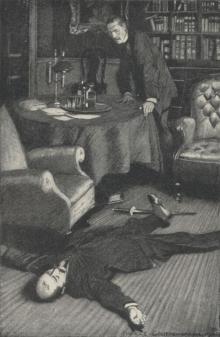 In the Library
In the Library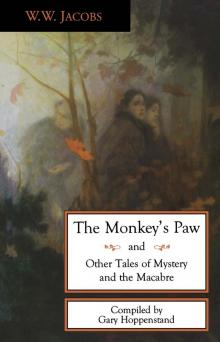 The Monkey's Paw and Other Tales Of Mystery and the Macabre
The Monkey's Paw and Other Tales Of Mystery and the Macabre